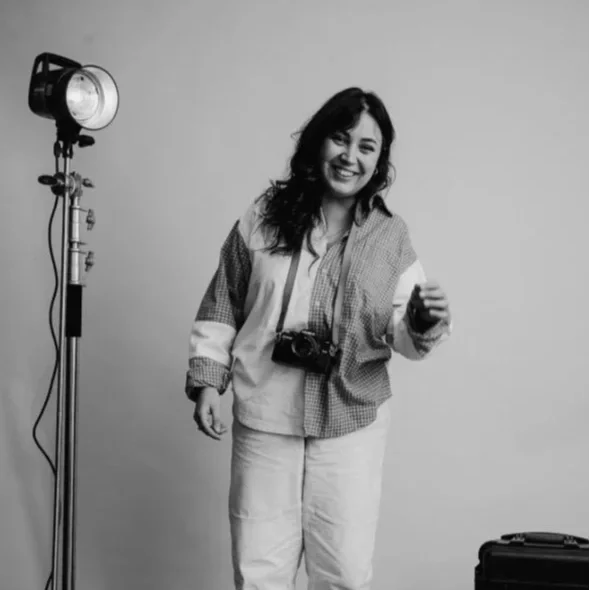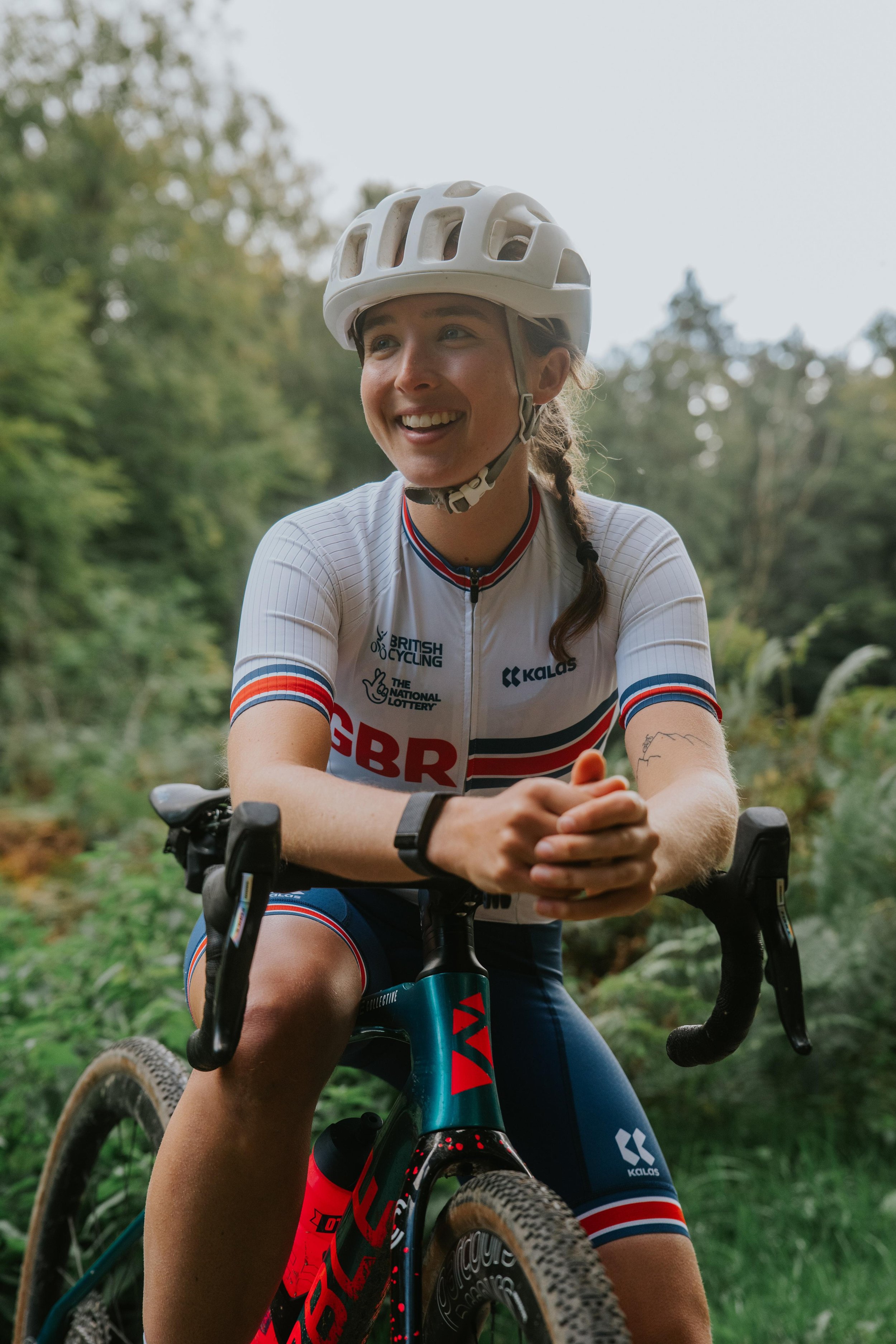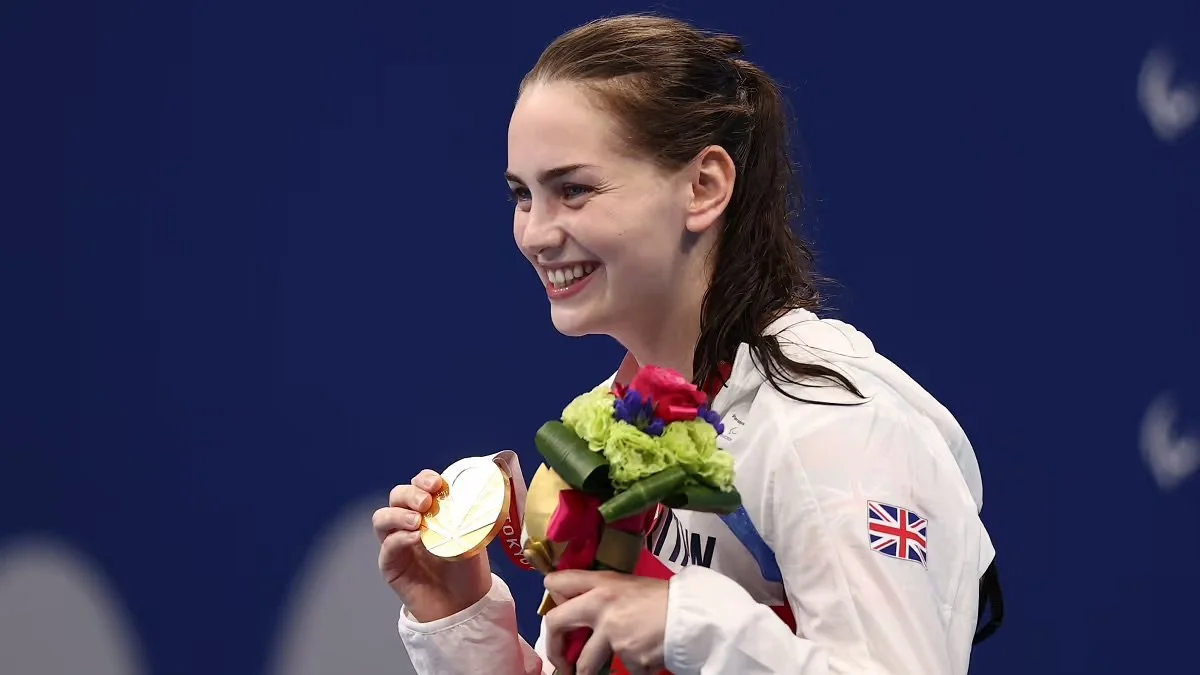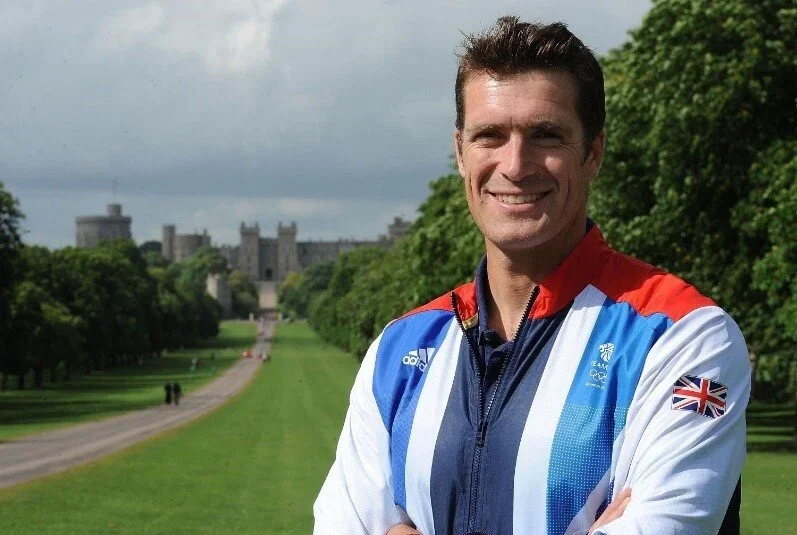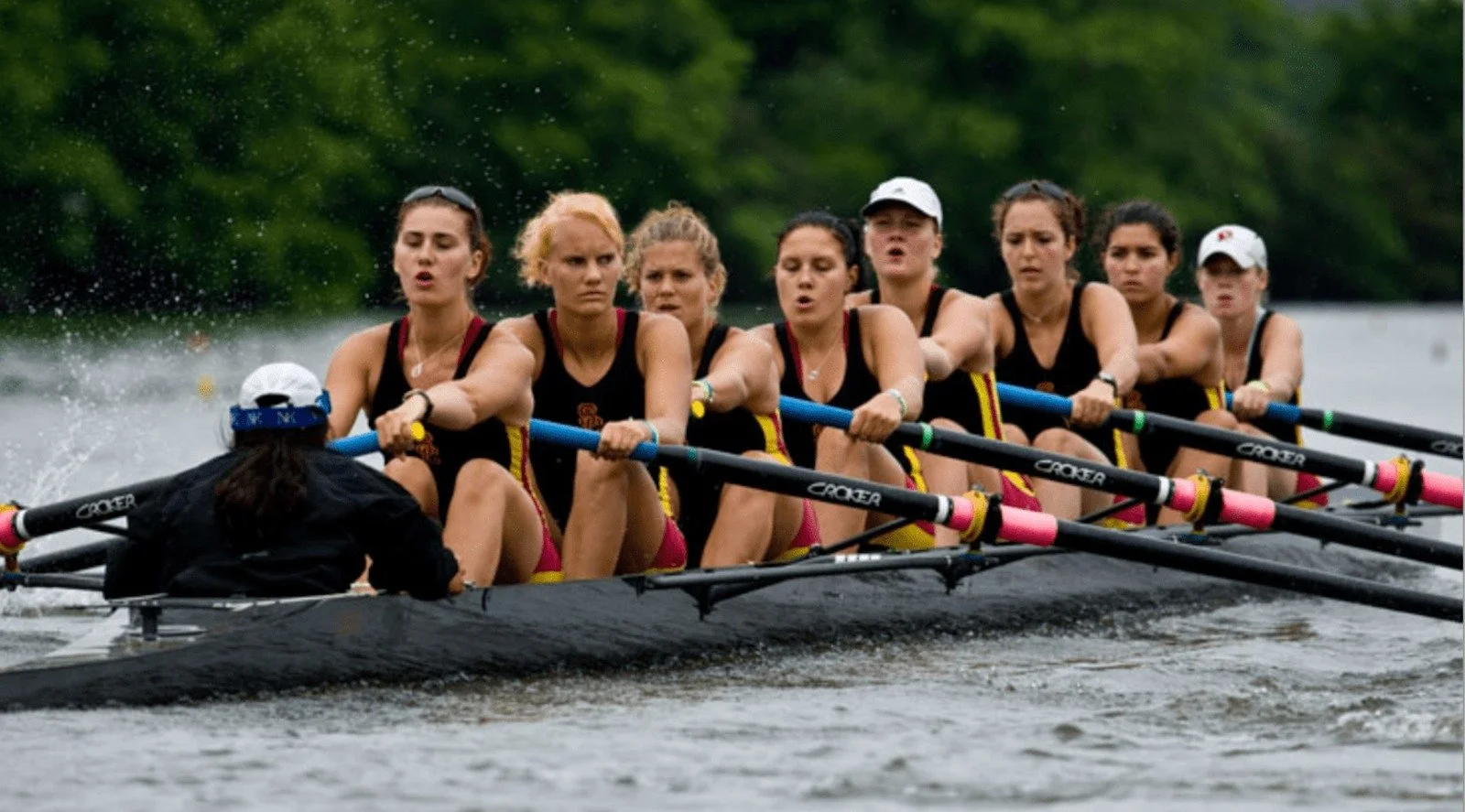Neurodiverse Sport articles
Search for specific content…
More Than What You See: Sarah Hope on Sport, Autism, and Advocacy
Sarah Hope is a former GB wheelchair basketball player and para ice hockey athlete. Diagnosed with autism and hereditary peripheral neuropathy, Sarah shares a powerful story of resilience, burnout, and finding belonging. From masking and misunderstanding to self-advocacy and structure, her journey challenges sport to do better—and reminds us of the strength found in lived experience.
"Neurodiversity in Sport" Hits the Airwaves – Thank You, BBC 5 Live!
We’re honoured to have joined BBC 5 Live’s “All About” podcast for an hour-long conversation on neurodiversity in elite sport. From Olympic rower Caragh McMurtry’s lived experience to Lucy Bronze’s powerful self-discovery, this episode spotlighted the strengths, challenges, and growing visibility of neurodivergent athletes. Here’s why this national moment matters—and how it fuels our mission at Neurodiverse Sport.
ND Celebration Week 2025: Beyond the Label – A New Kind of Athlete Storytelling
To close Neurodiversity Celebration Week 2025, Neurodiverse Sport launched Beyond the Label—a powerful portrait series by photographer Jade Sellick. Featuring voices from athletes and advocates, the event challenged stereotypes and celebrated the authentic stories of neurodivergent athletes beyond medals and diagnoses.
Specialised Minds: An Evolutionary Take on Neurodiversity by Adam D. Hunt
What if neurodivergent traits aren’t malfunctions—but adaptations? In this thought-provoking piece, psychiatry researcher Dr Adam D. Hunt draws from evolutionary biology, anthropology, and sport to reframe ADHD, autism, and dyslexia as ancient variations of human design. When seen through this lens, these traits—often pathologised—become powerful assets in the right environments. From classrooms to training halls, Adam invites us to stop fixing people and start redesigning systems.
Paul Burrows - Finding Stillness Through Movement
In this powerful second blog, Paul Burrows shares how sport has been a lifeline for understanding and regulating his Autistic and Dyslexic mind. From the calming effects of rowing on water to the obsessive challenges that helped him make sense of his mental energy, Paul reflects on how movement, structure, and self-awareness can create stability and meaning in an overwhelming world. His story offers insight into neurodivergent motivation, mental health, and the quiet strength found in purposeful routine.
Well, We All Need to Be a ‘Gang’ Member, Don’t We! A Personal Reflection by Paul Burrows
In this deeply personal blog, Paul Burrows explores the powerful link between neurodivergence, sport, and belonging. From early experiences of exclusion to discovering rowing as his "gang," Paul shares how sport helped him make sense of his Autistic and Dyslexic identity. This honest reflection offers insight into the quiet strength of purpose-driven connection, the value of shared goals over socialising, and the importance of creating spaces where everyone can find their place—on their own terms.
Textured Forks
Written by Maddy Nutt
Growing up without a formal diagnosis for autism, I very much learnt how to manage certain social situations and although on the outside I may appear to be thriving in these settings and an extrovert, inside my brain is a very different reality.
Endurance, Identity, and the Long Way Home: Ishmael Burdeau, the Autistic Ultrarunner
In this second part of his powerful blog series, Autistic ultrarunner and UESCA-certified coach Ishmael Burdeau shares how embracing his diagnosis transformed not only his understanding of himself but also his entire approach to sport. From ultracycling across Europe to completing gruelling ultramarathons like the Spine Race, Ishmael shows how the traits often misunderstood in autistic people—focus, routine, and perseverance—are, in fact, strengths in the world of endurance. His story is a moving reminder that finding the right fit can turn difference into a defining advantage.
Out of Step, Built to Endure: Ultrarunner Ishmael’s Early Struggles with Sport
Ishmael Burdeau is an Autistic ultrarunner and certified coach whose early experiences with exclusion and misunderstanding in school sport mirror those of many neurodivergent athletes. In this deeply personal first instalment of a two-part series, Ishmael reflects on how endurance sport became a refuge—and ultimately a revelation. His story is a powerful reminder that success doesn’t always look like early talent or conformity, but can emerge through self-awareness, autonomy, and finding the right fit.
Proudly Dyslexic: Zoe-Jane Littlewood on Netball, Physiotherapy and Being Unapologetically Herself
Zoe-Jane Littlewood is a former netball player and sports physiotherapist who proudly embraces her dyslexia. In this honest, funny and thought-provoking interview, she opens up about her experiences in elite sport, the reality of communication struggles, and the creative strengths neurodivergent people bring to the field. “If you support us properly,” she says, “we might just be your biggest asset.”
Two Sides of the Same Coin: Understanding Sam Smith’s Tennis Journey Through a Neurodivergent Lens
Sam Smith, a former British No. 1 tennis player and now a leading broadcaster, opens up about navigating elite sport as an undiagnosed autistic person. In this powerful blog by Olivia Rae, Sam’s story unfolds as a series of contrasting truths: discipline and disruption, calm and chaos, structure and overwhelm. Her journey reminds us that what’s often seen as “difficult” can in fact be the root of brilliance—when understood through a neurodivergent lens.
Coaching with Compassion: Kyle Gookins on Ego, Inclusion, and Emotional Intelligence in Sport
In this powerful and heartfelt interview, former NCAA football coach Kyle Gookins shares how becoming a parent to an Autistic son transformed not only his life, but also his coaching philosophy. From high-performance pressure to person-centred practice, Kyle speaks with honesty about ego, emotional intelligence, and the practical shifts coaches can make to better support neurodivergent athletes. A must-read for anyone passionate about inclusive sport.
Finding Strength Through Equine Therapy: James’s Story
James Lovatt’s story is one of misunderstanding, vulnerability, and shame—until he began to understand himself through the lens of neurodivergence. Now a competitive rider and passionate advocate for neurodiversity, James reflects on the toll of masking, the dangers of unsafe systems in sport, and the healing power of self-awareness and support.
The Formula for Thriving – A Neurodivergent Path to Performance
In part two of triathlete Tom Epton’s journey, we explore the formula behind his success—freedom, structure, curiosity, and purpose. Diagnosed with ADHD as a child, Tom shares how understanding his brain has allowed him to thrive in elite sport, education, and business. This blog highlights the hidden strengths of neurodivergent athletes and what they need to succeed.
From “Naughty Kid” to National Competitor
From school exclusions to international podiums, triathlete Tom Epton shares how a childhood diagnosis of ADHD shaped his journey in life and sport. His reflections on behaviour, belief, and building the right support system are a powerful reminder of what neurodivergent athletes can achieve when they're truly understood.
Coaching With Curiosity and Care: Creating Neuroinclusive Environments
Abi Chamberlain, former England Women’s Rugby 7s Captain and current London Irish Women’s Coach, doesn’t label herself a neuroinclusive coach—yet her impact speaks volumes. Her approach, rooted in curiosity and care, creates a psychologically safe environment where all athletes can thrive. In this blog, Abi shares her coaching philosophy, reflects on what it means to unlock performance across diverse minds and bodies, and offers practical insight into making sport more inclusive—without overcomplication. Whether you're an elite coach or a community volunteer, her story reminds us that good coaching is about listening, adapting, and always learning.
George Eastwood: The ND Coach Empowering Through Movement
George Eastwood, known as The ND Coach, is a personal trainer, former runner, and passionate advocate for neurodivergent inclusion in sport. Diagnosed with Tourette’s Syndrome at age four and later with ADHD, George has learned how movement, honesty, and community can transform lives – including his own. In this blog, he shares his journey from masking and misunderstanding to confidence and coaching, and explains why sport can be a lifeline for neurodivergent people.
Tully Kearney – Gold Medallist, World Record Holder, Autistic Athlete
Tully Kearney is a Paralympic champion, a world record holder – and proudly autistic. But for 10 years, she kept her diagnosis a secret from her sport. In this deeply honest interview, Tully reflects on what it’s like to mask, to fear being misunderstood, and ultimately to find her voice and speak out. Her story is a powerful reminder of how neurodivergent athletes can thrive – when sport starts working with difference, not against it.
“There’s magic in people — we just have to stop it from getting lost.” — Greg Searle, Olympic Rower
Greg Searle MBE is one of Britain’s most successful Olympic rowers — but few know he is also proudly dyslexic. In this honest and insightful interview, Greg shares how dyslexia shaped his learning, performance, and leadership throughout his elite rowing career. From his early victories with his brother to his individual bronze in the single scull and a powerful comeback at London 2012, Greg’s story is one of autonomy, self-awareness, and the power of person-centred coaching. He reminds us that neurodivergent athletes don’t need to be changed — they need to be understood.
Safe Havens, Hard Lessons: Alexandra Hambro on Rowing, Riding, and Reclaiming Confidence
In this week’s Neurodiverse Sport blog, former rower and current equine therapist Alexandra Hambro opens up about living with ADHD and Auditory Processing Disorder—and how sport became both a sanctuary and a source of pain. From hiding in cloakrooms at school to launching the inclusive platform We Row Like This, Alex shares her journey of fear, resilience, and advocacy. “I’m terrified every day,” she says, “but I show up anyway.” Her story reminds us that safe spaces—whether in boats or classrooms—can transform lives when we listen, adapt, and lead with empathy.



